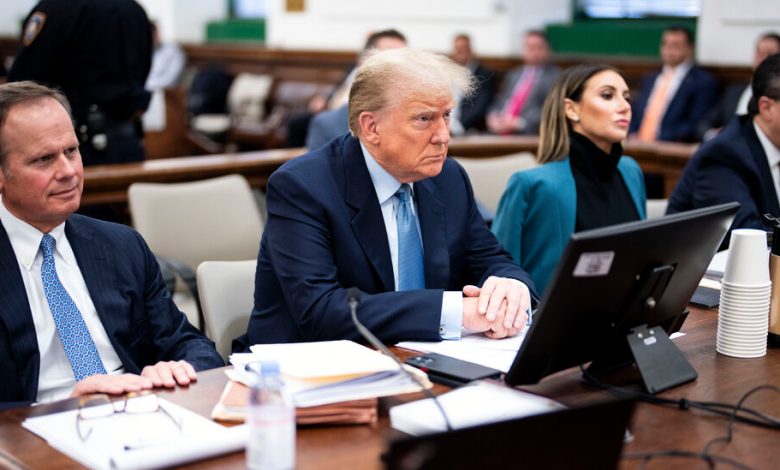Trump Will Not Testify as Scheduled in Civil Fraud Trial

Donald J. Trump has decided not to return to the witness stand to testify on Monday as he had planned, setting up an abrupt and anticlimactic ending to the defense’s case in his civil fraud trial in Manhattan.
As recently as Sunday morning, Mr. Trump had been expected to testify in his own defense in the case, in which the New York attorney general has accused him of fraudulently inflating his net worth. But just before 3:30 in the afternoon, Mr. Trump announced on his social media platform in two all-caps messages that he had already testified “very successfully and conclusively” and that “I will not be testifying on Monday.”
His about-face all but ends the lengthy and chaotic proceedings in the fraud trial, which began in early October. A defense witness, Eli Bartov, an accounting professor at New York University, is instead expected to conclude the defense’s case, to be followed by several rebuttal witnesses called by the attorney general’s lawyers. In January, both parties are expected to file final briefs, after which, the trial judge, Arthur F. Engoron, is expected to deliver his ruling.
The attorney general, Letitia James, has asked that Mr. Trump be fined $250 million and be permanently barred from running a business in New York. Even before the trial, Justice Engoron concluded that the former president had committed fraud by inflating the values of his assets on annual financial statements, which he then shared with banks and insurers to receive preferential treatment.
Over the past month, Mr. Trump’s lawyers have fought back against that argument with a parade of their own witnesses. The most consequential were some of the very bankers the former president was said to have defrauded.
David Williams, a banker in the wealth management group at Deutsche Bank, and Rosemary Vrablic, who oversaw hundreds of millions of dollars in loans to Mr. Trump, testified that the former president’s exaggerated claims of wealth had not influenced them and that the bank had conducted its own due diligence.
Mr. Trump’s testimony had been expected to cap off the defense’s case, but his last-minute decision reflected some caution on his lawyers’ part. When he first testified, in early November, the former president did not allow the witness stand or the formality of the courtroom to impede his usual belligerent style. Instead, he lashed out at those he perceived as his enemies — including Ms. James and Justice Engoron — while admitting to some involvement in the conduct at the heart of the case.
Two people with knowledge of Mr. Trump’s decision said that his legal advisers were concerned that any further testimony would do more harm than good, given that they believe the judge is biased against the former president.
Mr. Trump’s son Eric Trump also canceled scheduled testimony last week, leaving Donald Trump Jr. as the only member of the family who has appeared as a witness for both the attorney general and the defense.
Ben Protess and Maggie Haberman contributed reporting.